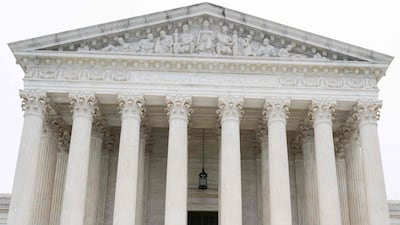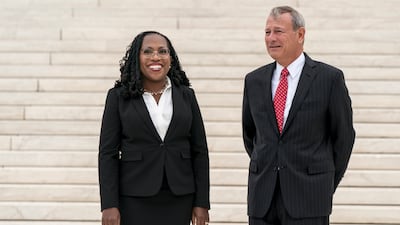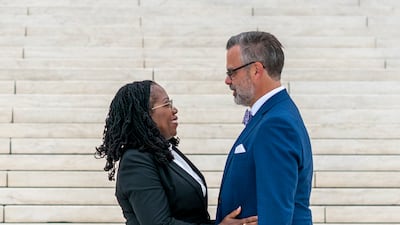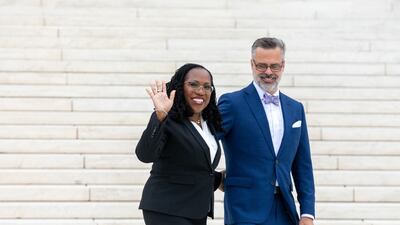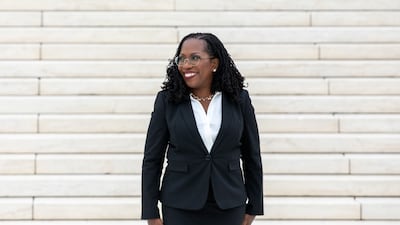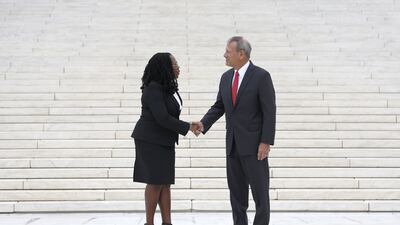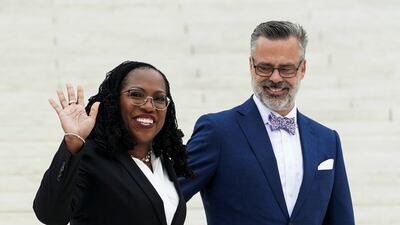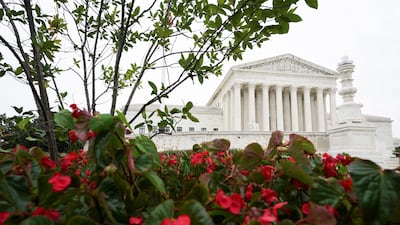The US Supreme Court opened what promises to be an eventful new term on Monday, welcoming a history-making justice to the bench as well as hearing arguments in an environmental dispute and taking up other notable cases that will be decided in the next nine months.
President Joe Biden's appointee Ketanji Brown Jackson, the first black woman justice, took part in oral arguments for the first time since being confirmed by the Senate in April to replace now-retired justice Stephen Breyer.
Ms Jackson Brown was not shy, posing questions to lawyers appearing in the first of two cases argued on Monday — a closely watched fight from Idaho over environmental regulation.
Members of the public were allowed into the ornate courtroom to watch the arguments for the first time since early in the Covid-19 pandemic in 2020.
The court's 6-3 conservative majority has become increasingly assertive, as evidenced by its rulings last term overturning the 1973 Roe v Wade decision that had legalised abortion nationwide and expanding gun rights.
A member of the court's liberal bloc, Ms Jackson Brown is the sixth woman to serve on the court. And for the first time, four women are serving at the same time — Ms Jackson Brown, Amy Coney Barrett, Elena Kagan and Sonia Sotomayor.
It is on the first Monday in October annually that the court gets back to work hearing cases. Before hearing its first arguments, it announced a series of new cases to be heard during the term and turned away other appeals.
The court heard arguments in a case that could limit the scope of a major federal environmental law — the Clean Water Act of 1972 — as they consider for a second time a married Idaho couple's bid to build on property that the US government has deemed a protected wetland.
The court agreed to hear a challenge to federal protections for internet and social media companies freeing them of responsibility for content posted by users in a case involving an American student fatally shot in a 2015 terrorist rampage in Paris.
The complaint alleges that Google violated the US Anti-Terrorism Act by recommending ISIS videos that incited violence on Google-owned YouTube.
“Google's services have played a uniquely essential role in the development of [ISIS's] image, its success in recruiting members from around the world and its ability to carry out attacks,” the complaint said.
It also agreed to hear Turkey's state-owned lender Halkbank's bid to avoid criminal charges of money laundering, bank fraud and conspiracy for allegedly helping Iran evade economic sanctions in a case that has strained Washington's relations with Ankara.
The justices on Monday turned away a number of appeals, declining to hear a challenge to a federal ban on devices called “bump stocks” that enable semi-automatic weapons to fire like a machinegun.
They also turned away a Ukrainian government bid to avoid paying a $173 million judgment to Russian oil and gas company Tatneft as ordered by a Paris-based arbitration panel.
News agencies contributed to this report
